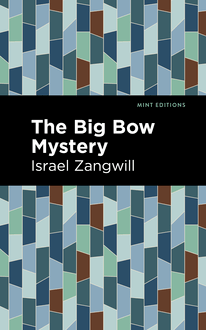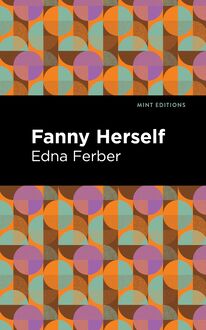-
 Univers
Univers
-
 Ebooks
Ebooks
-
 Livres audio
Livres audio
-
 Presse
Presse
-
 Podcasts
Podcasts
-
 BD
BD
-
 Documents
Documents
-
- Cours
- Révisions
- Ressources pédagogiques
- Sciences de l’éducation
- Manuels scolaires
- Langues
- Travaux de classe
- Annales de BEP
- Etudes supérieures
- Maternelle et primaire
- Fiches de lecture
- Orientation scolaire
- Méthodologie
- Corrigés de devoir
- Annales d’examens et concours
- Annales du bac
- Annales du brevet
- Rapports de stage
La lecture à portée de main
Vous pourrez modifier la taille du texte de cet ouvrage
Découvre YouScribe en t'inscrivant gratuitement
Je m'inscrisDécouvre YouScribe en t'inscrivant gratuitement
Je m'inscrisEn savoir plus
Vous pourrez modifier la taille du texte de cet ouvrage
En savoir plus

Description
Dawn O’Hara: The Girl Who Laughed (1911) is a novel by Edna Ferber. Written while the author was recovering from a bout of anemia, Ferber’s debut marked the beginning of an illustrious literary career. Inspired by her experience as a reporter in the city and countryside, Dawn O’Hara: The Girl Who Laughed is the story of a young woman who recognizes the unhappiness in her life and decides to risk it all for something better. Lighthearted in nature, Ferber’s novel recalls the best of Fitzgerald in its unswerving commitment to humanity in all its beauty and terror. “‘Newspaper reporting, h'm? In New York? That's a devil of a job for a woman. And a husband who... Well, you'll have to take a six months' course in loafing, young woman. And at the end of that time, if you are still determined to work, can't you pick out something easier—like taking in scrubbing, for instance?’” As though suffering a mental breakdown wasn’t bad enough, Dawn is forced to listen to the snide advice of a doctor who seems to know more about her home and professional life than she does. Determined to maintain her career as a reporter, she decides to move to a small town and start fresh. Away from the hustle and bustle of New York City, she hopes to find success while learning more about herself in the process. With a beautifully designed cover and professionally typeset manuscript, this edition of Edna Ferber’s Dawn O’Hara: The Girl Who Laughed is a classic work of American literature reimagined for modern readers.
Sujets
Informations
| Publié par | Mint Editions |
| Date de parution | 28 mai 2021 |
| Nombre de lectures | 0 |
| EAN13 | 9781513288208 |
| Langue | English |
| Poids de l'ouvrage | 3 Mo |
Informations légales : prix de location à la page 0,0450€. Cette information est donnée uniquement à titre indicatif conformément à la législation en vigueur.
Extrait
Dawn O’Hara
The Girl Who Laughed
Edna Ferber
Dawn O’Hara: The Girl Who Laughed was first published in 1911.
This edition published by Mint Editions 2021.
ISBN 9781513283180 | E-ISBN 9781513288208
Published by Mint Editions ®
minteditionbooks .com
Publishing Director: Jennifer Newens
Design & Production: Rachel Lopez Metzger
Project Manager: Micaela Clark
Typesetting: Westchester Publishing Services
C ONTENTS I. T HE S MASH -U P II. M OSTLY E GGS III. G OOD AS N EW IV. D AWN D EVELOPS A H EIMWEH V. T HE A BSURD B ECOMES S ERIOUS VI. S TEEPED IN G ERMAN VII. B LACKIE ’ S P HILOSOPHY VIII. K AFFEE AND K AFFEEKUCHEN IX. T HE L ADY FROM V IENNA X. A T RAGEDY OF G OWNS XI. V ON G ERHARD S PEAKS XII. B ENNIE THE C ONSOLER XIII. T HE T EST XIV. B ENNIE AND THE C HARMING O LD M AID XV. F AREWELL TO K NAPFS XVI. J UNE M OONLIGHT , AND A N EW B OARDINGHOUSE XVII. T HE S HADOW OF T ERROR XVIII. P ETER O RME XIX. A T URN OF THE W HEEL XX. B LACKIE ’ S V ACATION C OMES XXI. H APPINESS
I
T HE S MASH -U P
T here are a number of things that are pleasanter than being sick in a New York boarding-house when one’s nearest dearest is a married sister up in far-away Michigan.
Some one must have been very kind, for there were doctors, and a blue-and-white striped nurse, and bottles and things. There was even a vase of perky carnations—scarlet ones. I discovered that they had a trick of nodding their heads, saucily. The discovery did not appear to surprise me.
“Howdy-do!” said I aloud to the fattest and reddest carnation that overtopped all the rest. “How in the world did you get in here?”
The striped nurse (I hadn’t noticed her before) rose from some corner and came swiftly over to my bedside, taking my wrist between her fingers.
“I’m very well, thank you,” she said, smiling, “and I came in at the door, of course.”
“I wasn’t talking to you,” I snapped, crossly, “I was speaking to the carnations; particularly to that elderly one at the top—the fat one who keeps bowing and wagging his head at me.”
“Oh, yes,” answered the striped nurse, politely, “of course. That one is very lively, isn’t he? But suppose we take them out for a little while now.”
She picked up the vase and carried it into the corridor, and the carnations nodded their heads more vigorously than ever over her shoulder.
I heard her call softly to some one. The some one answered with a sharp little cry that sounded like, “Conscious!”
The next moment my own sister Norah came quietly into the room, and knelt at the side of my bed and took me in her arms. It did not seem at all surprising that she should be there, patting me with reassuring little love pats, murmuring over me with her lips against my check, calling me a hundred half-forgotten pet names that I had not heard for years. But then, nothing seemed to surprise me that surprising day. Not even the sight of a great, red-haired, red-faced, scrubbed looking man who strolled into the room just as Norah was in the midst of denouncing newspapers in general, and my newspaper in particular, and calling the city editor a slave-driver and a beast. The big, red-haired man stood regarding us tolerantly.
“Better, eh?” said he, not as one who asks a question, but as though in confirmation of a thought. Then he too took my wrist between his fingers. His touch was very firm and cool. After that he pulled down my eyelids and said, “H’m.” Then he patted my cheek smartly once or twice. “You’ll do,” he pronounced. He picked up a sheet of paper from the table and looked it over, keen-eyed. There followed a clinking of bottles and glasses, a few low-spoken words to the nurse, and then, as she left the room the big red-haired man seated himself heavily in the chair near the bedside and rested his great hands on his fat knees. He stared down at me in much the same way that a huge mastiff looks at a terrier. Finally his glance rested on my limp left hand.
“Married, h’m?”
For a moment the word would not come. I could hear Norah catch her breath quickly. Then—“Yes,” answered I.
“Husband living?” I could see suspicion dawning in his cold gray eye.
Again the catch in Norah’s throat and a little half warning, half supplicating gesture. And again, “Yes,” said I.
The dawn of suspicion burst into full glow.
“Where is he?” growled the red-haired doctor. “At a time like this?”
I shut my eyes for a moment, too sick at heart to resent his manner. I could feel, more than see, that Sis was signaling him frantically. I moistened my lips and answered him, bitterly.
“He is in the Starkweather Hospital for the insane.”
When the red-haired man spoke again the growl was quite gone from his voice.
“And your home is—where?”
“Nowhere,” I replied meekly, from my pillow. But at that Sis put her hand out quickly, as though she had been struck, and said:
“My home is her home.”
“Well then, take her there,” he ordered, frowning, “and keep her there as long as you can. Newspaper reporting, h’m? In New York? That’s a devil of a job for a woman. And a husband who… Well, you’ll have to take a six months’ course in loafing, young woman. And at the end of that time, if you are still determined to work, can’t you pick out something easier—like taking in scrubbing, for instance?”
I managed a feeble smile, wishing that he would go away quickly, so that I might sleep. He seemed to divine my thoughts, for he disappeared into the corridor, taking Norah with him. Their voices, low-pitched and carefully guarded, could be heard as they conversed outside my door.
Norah was telling him the whole miserable business. I wished, savagely, that she would let me tell it, if it must be told. How could she paint the fascination of the man who was my husband? She had never known the charm of him as I had known it in those few brief months before our marriage. She had never felt the caress of his voice, or the magnetism of his strange, smoldering eyes glowing across the smoke-dimmed city room as I had felt them fixed on me. No one had ever known what he had meant to the girl of twenty, with her brain full of unspoken dreams—dreams which were all to become glorious realities in that wonder-place, New York.
How he had fired my country-girl imagination! He had been the most brilliant writer on the big, brilliant sheet—and the most dissolute. How my heart had pounded on that first lonely day when this Wonder-Being looked up from his desk, saw me, and strolled over to where I sat before my typewriter! He smiled down at me, companionably. I’m quite sure that my mouth must have been wide open with surprise. He had been smoking a cigarette an expensive-looking, gold-tipped one. Now he removed it from between his lips with that hand that always shook a little, and dropped it to the floor, crushing it lightly with the toe of his boot. He threw back his handsome head and sent out the last mouthful of smoke in a thin, lazy spiral. I remember thinking what a pity it was that he should have crushed that costly-looking cigarette, just for me.
“My name’s Orme,” he said, gravely. “Peter Orme. And if yours isn’t Shaughnessy or Burke at least, then I’m no judge of what black hair and gray eyes stand for.”
“Then you’re not,” retorted I, laughing up at him, “for it happens to be O’Hara—Dawn O’Hara, if ye plaze.”
He picked up a trifle that lay on my desk—a pencil, perhaps, or a bit of paper—and toyed with it, absently, as though I had not spoken. I thought he had not heard, and I was conscious of feeling a bit embarrassed, and very young. Suddenly he raised his smoldering eyes to mine, and I saw that they had taken on a deeper glow. His white, even teeth showed in a half smile.
“Dawn O’Hara,” said he, slowly, and the name had never sounded in the least like music before, “Dawn O’Hara. It sounds like a rose—a pink blush rose that is deeper pink at its heart, and very sweet.”
He picked up the trifle with which he had been toying and eyed it intently for a moment, as though his whole mind were absorbed in it. Then he put it down, turned, and walked slowly away. I sat staring after him like a little simpleton, puzzled, bewildered, stunned. That had been the beginning of it all.
He had what we Irish call “a way wid him.” I wonder now why I did not go mad with the joy, and the pain, and the uncertainty of it all. Never was a girl so dazzled, so humbled, so worshiped, so neglected, so courted. He was a creature of a thousand moods to torture one. What guise would he wear today? Would he be gay, or dour, or sullen, or teasing or passionate, or cold, or tender or scintillating? I know that my hands were always cold, and my cheeks were always hot, those days.
He wrote like a modern Demosthenes, with all political New York to quiver under his philippics. The managing editor used to send him out on wonderful assignments, and they used to hold the paper for his stuff when it was late. Sometimes he would be gone for days at a time, and when he returned the men would look at him with a sort of admiring awe. And the city editor would glance up from beneath his green eye-shade and call out:
“Say, Orme, for a man who has just wired in about a million dollars’ worth of stuff seems to me you don’t look very crisp and jaunty.”
“Haven’t slept for a week,” Peter Orme would growl, and then he would brush past the men who were crowded around him, and turn in my direction. And the old hot-and-cold, happy, frightened, laughing, sobbing sensation would have me by the throat again.
Well, we were married. Love cast a glamour over his very vices. His love of drink? A weakness which I would transform into strength. His white hot flashes of uncontrollable temper? Surely they would die down at my cool, tender touch. His fits of abstraction and irritability? Mere evidences of the genius within. Oh, my worshiping soul was always alert with an excuse.
And so we were married. He had quite tired of me in less than a year, and the hand that had always shaken a little shook a great de
-
 Univers
Univers
-
 Ebooks
Ebooks
-
 Livres audio
Livres audio
-
 Presse
Presse
-
 Podcasts
Podcasts
-
 BD
BD
-
 Documents
Documents
-
Jeunesse
-
Littérature
-
Ressources professionnelles
-
Santé et bien-être
-
Savoirs
-
Education
-
Loisirs et hobbies
-
Art, musique et cinéma
-
Actualité et débat de société
-
Jeunesse
-
Littérature
-
Ressources professionnelles
-
Santé et bien-être
-
Savoirs
-
Education
-
Loisirs et hobbies
-
Art, musique et cinéma
-
Actualité et débat de société
-
Actualités
-
Lifestyle
-
Presse jeunesse
-
Presse professionnelle
-
Pratique
-
Presse sportive
-
Presse internationale
-
Culture & Médias
-
Action et Aventures
-
Science-fiction et Fantasy
-
Société
-
Jeunesse
-
Littérature
-
Ressources professionnelles
-
Santé et bien-être
-
Savoirs
-
Education
-
Loisirs et hobbies
-
Art, musique et cinéma
-
Actualité et débat de société
- Cours
- Révisions
- Ressources pédagogiques
- Sciences de l’éducation
- Manuels scolaires
- Langues
- Travaux de classe
- Annales de BEP
- Etudes supérieures
- Maternelle et primaire
- Fiches de lecture
- Orientation scolaire
- Méthodologie
- Corrigés de devoir
- Annales d’examens et concours
- Annales du bac
- Annales du brevet
- Rapports de stage















